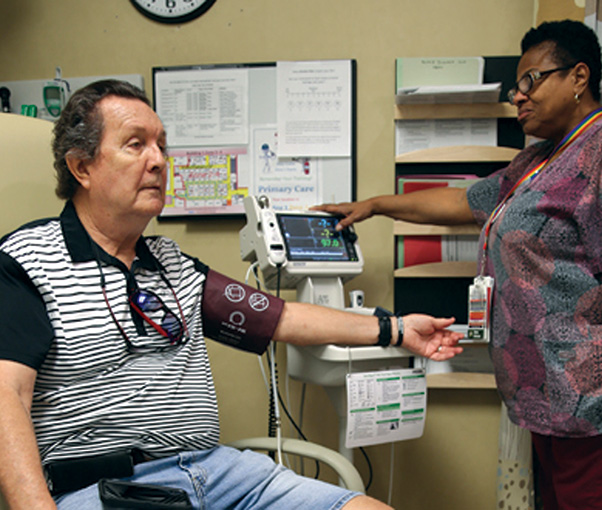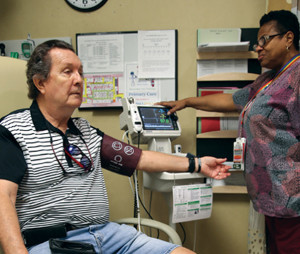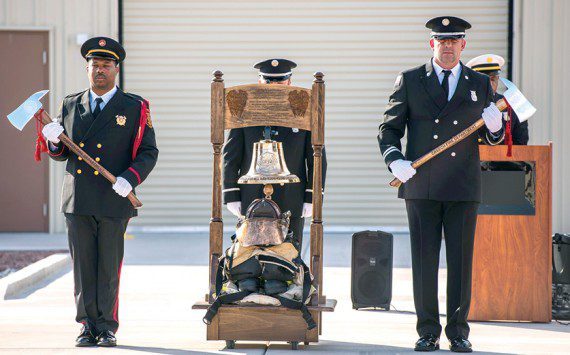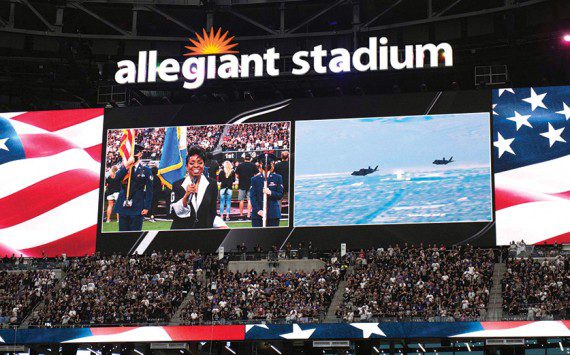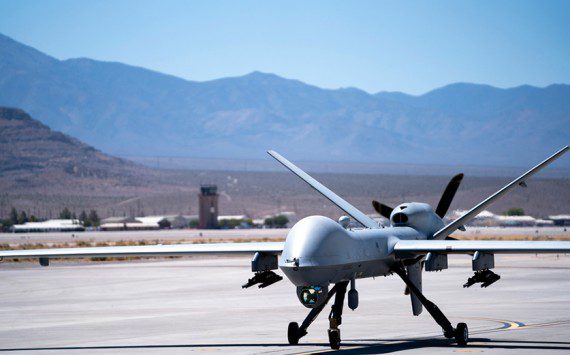Courtesy photo
Daniel Ford served as a helicopter crew chief for 15 of his 22 years in the U.S. Marine Corps.
Between the noises from the engine, the weapons and the rotary blades, the Vietnam veteran experienced dangerous levels of sound daily.
Of all the dangers he encountered while on duty, hearing loss was the last thing on his mind. “We used to wear helmets for communication and protection, but ear plugs weren’t really being used until the time I retired,” Ford said.
When he first saw an audiologist upon his retirement in 1987, Ford’s hearing had deteriorated to the point where he could barely hear or understand a conversation with his children. “I was told that nothing could help my hearing loss. It was there. It was gonna be there. It was something I was just going to have to deal with for the rest of my life.”
Ford is not alone. Hearing loss and tinnitus are the most prevalent service-connected disabilities of all compensation recipients among veterans in every period of service since World War II. Additionally, hearing loss impacts approximately 45 percent of adults over the age of 65 in the general population. The most common type of hearing loss among veterans is high frequency sensorineural hearing loss that varies in severity from mild to profound. This type of hearing loss is generally caused by noise exposure, age or both and causes difficulty distinguishing sounds or understanding speech.
While wearable hearing aids have existed in some form since the 1940s, the last 30 years have shown incredible leaps in technology. This has not only made the devices more effective, but less obtrusive and easier to conceal. “When I registered here at the VA, that’s when I found out that hearing aids could help my hearing loss,” Ford said. “It wouldn’t just be a loudspeaker in my ear, it would be something that could really help.”
“These vital technologies truly change the lives of our veterans, and allow them to stay connected with sound,” said VA Southern Nevada Healthcare System Audiologist Dr. Jemila Fairley. “These modern advancements have been proven to provide substantial quality of life improvements in areas such as communication, isolation, and relations with family and friends. Veterans are able to actively participate in their own healthcare, enjoy quality time with loved ones, make phone calls, wirelessly stream music and other media directly through their hearing aids, and much more.”
Nationwide, VA audiologists are focused on bringing quality care and products to Veterans suffering from hearing loss and tinnitus. With more than 1,300 serving veterans at locations throughout the country, the Department of Veterans Affairs is the largest employer of audiologists in the United States. As such, VA can provide state of the art technology, including hearing aids, FM systems, cochlear implants, tinnitus maskers, and alerting devices to assist Veterans as medically necessary. The Southern Nevada Audiology Clinic currently consists of nine all doctoral-level audiologists, three audiology technicians in-house (plus telehealth technicians at four locations in Southern Nevada), and two doctoral candidates in their final rotations.
“At the VA, audiologists work with veterans, service members and their families to improve communication by using advanced technologies and extensive counseling,” Fairley said. “Both in our VA clinics and via telehealth, we provide screenings, diagnostic hearing evaluations, hearing aid fittings and repairs, aural rehabilitation, and many other services.”
Fairley is the lead clinician for the Cochlear Implant program. And for veterans like Ford, these services have had a great impact on their lives. “Since I retired in 1987, audiology through the VA has improved 1,000 percent,” he said. “Thirty-one years ago, I had no hearing aids, and today I am wearing them and my hearing is perfect. Every time I’ve wanted some assistance or had questions about the capabilities or the testing, the VA has been there to help me the whole way.”
The VA Southern Nevada Healthcare System offers direct scheduling for veterans in need of routine hearing exams without the need of a consult from a provider. Routine exams can be scheduled by any Primary Care Clinic medical support assistant or by calling the VASNHS Call Center at 702-791-9024.
Editor’s note: This process cannot be used to schedule exams in support of compensation and pension claims. Veterans filing claims for hearing loss will be scheduled by the VA as part of their claims process so all requirements are met.






